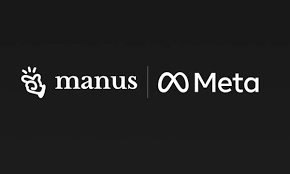 September 9, 2024
September 9, 2024What are AI influencers?
These digital characters, designed to interact in ways that are almost indistinguishable from human influencers, are rapidly gaining popularity thanks to their ability to maintain a consistent image that is perfectly aligned with brand values.
This trend has its roots in the rise of CGI (computer graphics), graphic design, and 3D modeling technology along with the advancement of AI algorithms.
Initially, the physical appearance of the influencer is designed using modeling software to create a realistic visual representation.
Artificial intelligence, such as neural networks and machine learning, is then used to give the character a personality, behavior, and interactive capabilities.
The first major example of an AI influencer was Lil Miquela, created in 2016 by the startup Brud in Los Angeles. Lil Miquela has managed to collaborate with major brands such as Prada, BMW, and Calvin Klein, attracting millions of followers on platforms such as Instagram and TikTok.
This ability to capture the attention of such a wide and diverse audience makes AI influencers an attractive option for brands looking to maximize their reach.
Advantages of AI influencers for marketing
One of the main advantages of these influencers is that they can be precisely controlled and adjusted by brands, ensuring perfect alignment with the desired messages and aesthetics.
Control and consistency in the brand image
This eliminates the risk of unexpected behavior or scandals that could negatively affect the brand's reputation.
Furthermore, being digital entities, they can quickly adapt to new trends and changes in the market, which keeps them always relevant.
Global reach and content optimization
Another significant advantage is the ability of AI influencers to operate in multiple markets and in different languages without the need for complex adaptations.
In addition, brands can use advanced algorithms to analyze data in real time and adjust their advertising messages according to the preferences of their audience.
This increases the conversion rate and return on investment.
Ethical challenges and considerations
However, the growing presence of these influencers also raises ethical challenges.
There are concerns about authenticity and transparency, especially among young audiences who might not be aware that they are interacting with fictional characters.
In addition, these virtual influencers, being designed to be virtually perfect, could contribute to setting unattainable beauty standards, which could have a negative impact on followers' self-esteem.
https://www.foromarketing.com/influencers-creados-ia/

Advances in AI are giving works generated with this technology increasingly realistic quality, which can pose a significant challenge when distinguishing between reality and artificial content. To help users in this regard, Google has integrated into Gemini the ability...
Leer más...
Google almost missed the deadline for its last core update of the year. The tech giant activated its major update on December 11th, along with a prediction that it would take about three weeks to complete. Had this timeframe been strictly adhered to, we would be bringin...
Leer más...
A couple of months ago, we told you how TikTok Shop had reached 12,000 local sellers, coinciding with its first anniversary in Spain. It's been a year of growth and, of course, adaptation, both for the platform and for those who use it to sell. Now, we have some int...

In October, OpenAI launched Atlas, an AI-powered browser that functions as a proactive personal assistant, capable of understanding the context of the websites you visit and helping you in real time with summaries, contextual searches, and task automation. With this pro...

Meta's move is as unexpected as it is risky, revealing its concern about getting ahead in the race to achieve Artificial General Intelligence, something Manus has been boasting about since its founding in March 2025. What Meta's acquisition of Manus entails Alth...